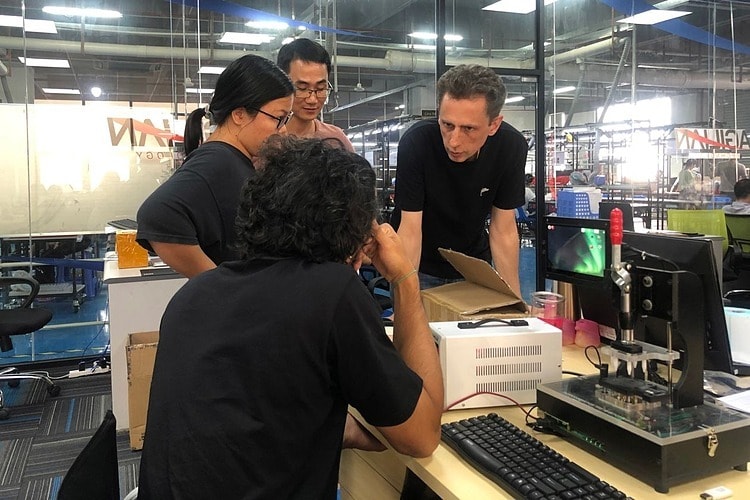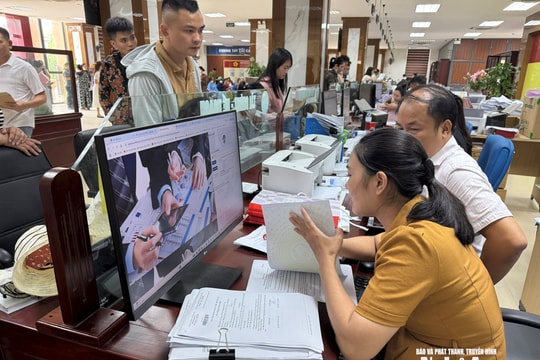Small businesses are precarious during the pandemic
Today, many factories reopened, but many small and medium-sized enterprises are worried that "there may not be enough employees to return to work."
As the Chinese government scrambles to contain the spread of the coronavirus, Fabien Gaussorgues, the CEO of Agilian Technology, is struggling to keep his company, which makes consumer electronics for small business customers in North America, afloat.
As CEO, Fabien Gaussorgues is not sure that all 80 employees at the factory will return after the extended Lunar New Year holiday. Even if they do, he cannot guarantee the quality of the process and cannot ship to customers because many flights from China have been canceled.
"We have warned our customers that air freight is not possible for the next three months," Mr Gaussorgues said. "Suppliers cannot commit to anything right now. That is the number one risk. It could force us to stop production," he added.
Agilian Technology’s plight is a case study of the challenges facing businesses in China as they try to get back to work after the Lunar New Year holiday, but are hit by the coronavirus outbreak. Lockdowns and travel restrictions are increasing, choking off supplies of raw materials for production. Workers are also finding it difficult to travel.
 |
| Agilian Technology is among the small and medium-sized enterprises operating in China facing difficulties due to nCoV.Photo: FG |
The virus is the latest blow to businesses in the world’s largest manufacturing economy, which was already hurt by last year’s trade war with the United States. The disruption to production is expected to affect companies of all sizes, including giants like Apple and Qualcomm. But small businesses are particularly vulnerable.
“Suddenly, there is a threat. Many organizations are rethinking their supply chains,” said Renaud Anjoran, CEO of Sofeast, a quality assurance and engineering company focused on the Chinese market. He said that thousands of small and medium-sized factories there could close because of the shock.
“Unfortunately, this will impact our production and deliveries,” said Janice Wang, CEO of New York-based Alvanon, a consultant to retailers and apparel manufacturers including Under Armour, which operates in Shanghai. “We expect our paid goods to be delayed by four weeks,” she said.
China has extended the Lunar New Year holiday by three days and kept most businesses closed afterward to limit the spread of the virus. Many factories are expected to reopen today (February 10), although it is unclear how many will be able to. Many workers are still unable to leave their hometowns to return to work, while employers are still paying wages. Factories that reopen may be less productive due to the lack of workers.
German automaker Volkswagen AG has pushed back the resumption of production at some plants to February 17, citing challenges in the supply chain and ensuring the safety of factory workers, who face limited travel options.
“If some key suppliers suddenly shut down, or are several months late in delivering, that is a mortal threat to a business,” said Mr Anjoran, who said that an additional 10% tariff was still not as onerous as the current situation.
According to DHL’s risk analytics platform Resilience360, domestic freight in China is adding four to five hours to each journey as 18-wheelers get stuck at temperature checkpoints. Air and sea freight are also affected. More than a dozen countries have suspended flights to and from China since the outbreak began. Shipping lines have also halted operations. Carrier CMA CGM SA said it has canceled shipments to Chinese ports.
Terry Newman, general manager of a flooring company in the eastern city of Huzhou, is unsure how cargo will be transported. He has not yet set a date to reopen his factory because he is struggling to find enough masks for his 25 employees. Masks have become mandatory in some parts of China.
Businesses in and around Wuhan were the first to be affected by the outbreak, including Hyundai and Hitachi factories. Then the impact spread across the country.
China’s growing integration with the global economy over the past two decades has driven an 11-fold increase in exports to $2.7 trillion in 2018, since 2000. Over the same period, the world economy expanded 2.6 times. As a result, the world is now more dependent than ever on China for critical goods and services, compounding the impact of the coronavirus on the global economy.
Agilian Technology, based in Dongguan, southern China, said Fabien Gaussorgues told clients that production would be affected at least this month and likely next. Of his 80 employees, he expects 15 to return to work this week if the factory is allowed to reopen. That could increase to about 30 after that.
“Our business plan takes into account risks like fires but not this kind of national shutdown,” he said, adding that the combination of rising costs and production risks could make him consider leaving China.
“Last year we felt pressure to move to another country. We definitely felt more pressure to do that in 2020,” he said.

.jpg)





.jpg)
